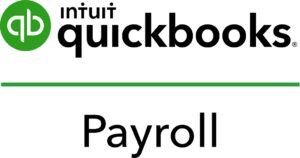It’s nearly Christmas, which means many people can look forward to a well-earned rest. But if you are an employer or payroll professional, Christmas and New Year’s brings a number of potential challenges that you need to be aware of and prepare for before you can start your Christmas break. Here are some of the most common Christmas payroll pitfalls and how to avoid them!
1. Changes to payment dates
This year, both Christmas Day and New Year’s are on a Friday, which means that some businesses may have to bring the normal salary pay date forward by a day or two. If your business operates on a weekly payroll basis, then you might need to pay employees in advance to cover any days of business shut down over the festive period.
It is important to let your payroll team know well ahead of time what the arrangements are so they can plan and put the necessary procedures in place. As a result, your payroll processing timetable may also need to be brought forward for December in order to pay everyone on time.
2. Full Payment Submission (FPS) and Employer Payroll Summary (EPS) changes
Even if your company pay day is brought forward in December, remember that the pay date on the FPS submission should still show the normal contractual (regular) pay date. Submission of the EPS should be as per the standard timetable for this – i.e. sent between the 20th of the current month and the 19th of the month following. If this is done incorrectly, it could cost up to £400 in penalties from HMRC – a fine that can easily be avoided!
Discover more around small business payroll3. Christmas bonuses and gifts
Many companies hand out Christmas bonuses or gifts to their employees to mark the end of a successful business year. However, while this might look really straight forward on paper, attributing the correct tax to these kinds of gifts can be a real challenge for your payroll team.
First of all, it is important to make the distinction between cash presents and physical goods. It then comes down to whether these goods can be resold for cash or not and whether the employee receiving the gift is a director and how much they earn. This can be quite confusing and it is important you and your payroll team are clear on these definitions. Some professional companies offer payroll advice lines to give guidance on this subject so ensure you make use of these additional resources when in doubt.
4. Christmas working hours
There are no legal requirements around working over the festive period but, while a lot of companies choose to stay shut over Christmas and New Year’s, in some instances employees do still have to work. Make sure you don’t forget to make arrangements with your payroll team for paying those employees on time.
John Spooner is payroll legislation consultant at Moorepay.
SmallBusiness.co.uk has teamed up with Intuit Quickbooks to help you find the right Payroll software for your business. To find out more about getting your payroll and business finances all in one place, click here






